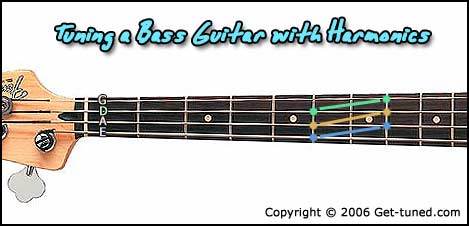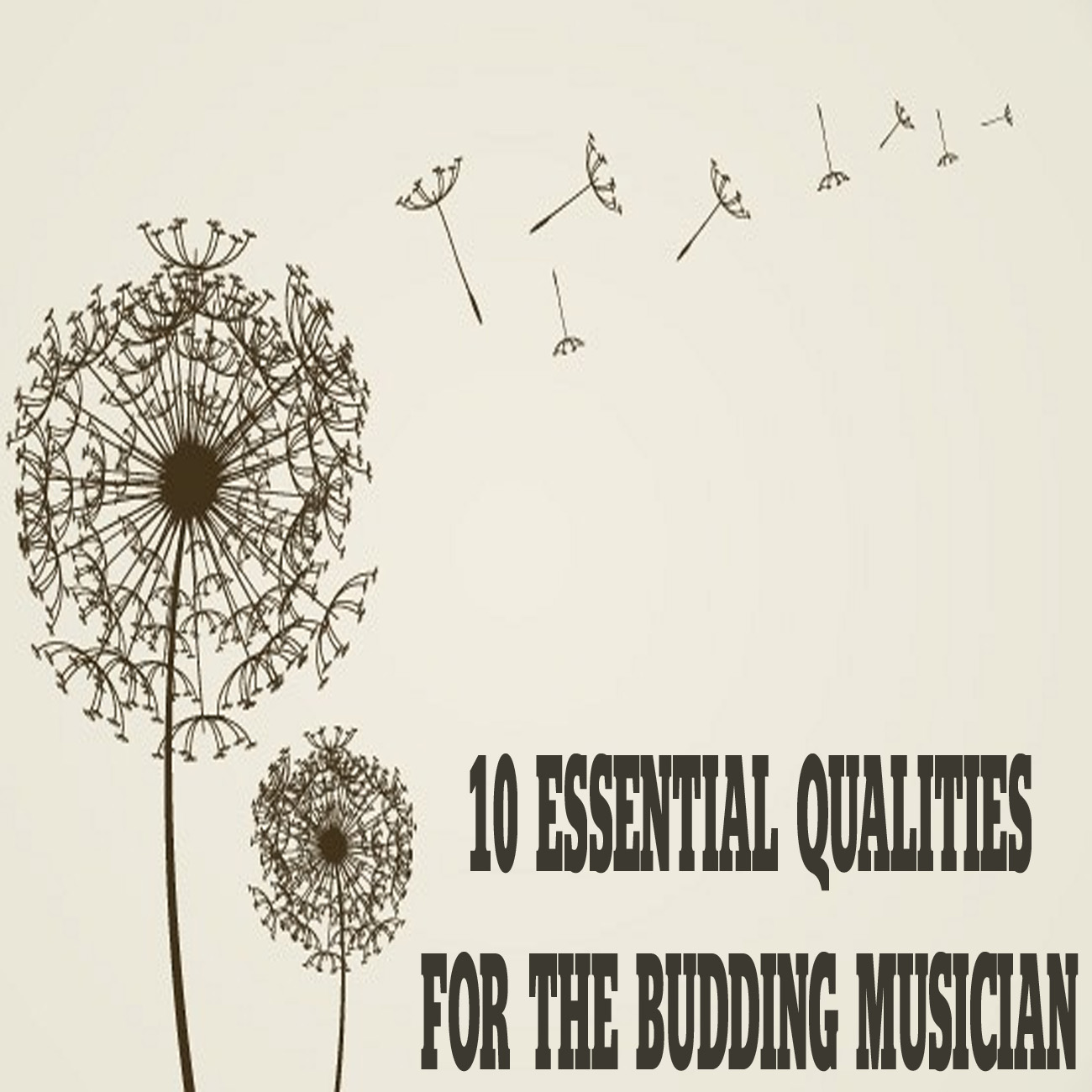
There’s the old expression “if I knew then what I know now,” meaning, if I could just go back in time and slap myself for being so stupid because I’m so smart today. With that being said, yes, this is going to be a piece on what budding musicians should know as they’re coming up. Yes, I’m going to attempt to save you some time. However, knowing what I know about young musicians, no one is actually going to listen to me because youngsters know everything. They can do no wrong. Old folks that have been around forever got through life by mistake and happenstance, I guess. Yet, this younger generation is known to scour the internet for cheats and codes to get the upper-hand on their newest video game. Well, look here, if you want some experience points, infinite health, and fast travel tips—pay attention, you’re about to get it. These are my Top 10 tips on what you should develop early in life for a better tomorrow as a musician.
When you start playing guitar, bass, or drums, you don’t know jack shit about it. You just want to play. I understand. So I’m going to disregard all the actual playing stuff and talk about things not related to fretboard wankery. This has more to do with developing your skills into something more akin to being a professional. These are the skills and characteristics that all pros have developed early on that so many others have overlooked in their journey through music.
Hell, I’ll venture to say that some of these skills I’m about to list have even been overlooked by the pros. So this is for everyone out there.
10) Learn to tune your instrument by ear.
Today you can buy a number of products that will help you tune your guitar. Most of you that run your cable into your preamp or pedalboard already have some form of tuning device. Some of you out there rely on the Super Snark tuner that clamps to the headstock. Those are all great…but you’re not training your ear. And what’s the most important thing when dealing with music? Yeah, your ears. It’s kinda the most important sense we have when dealing with music.
When I first started playing bass I couldn’t afford to buy any fancy tuners. What I did instead was I bought this audio tape that was for tuning. It was a cassette tape you popped into your stereo and it had some guy saying, “Alright, let’s tune up. Here’s an E.” And it would play a long E tone. So I would tune my instrument that way. Not by looking at a needle on a tuner or digital display.
When I was away from home and at a friend’s house I would tune via piano. Play a note, sustain it on piano and tune my bass that way. And believe me, it was difficult at first. Especially for the bass. When you’re tuning to such low notes it’s really hard sometimes to hear if you’re really in tune. But with some practice and some patience I got it. I can now restring my instrument and get pretty close to the standard tuning while winding the strings up. And if I’m playing and I hear that I’m a little out of tune on a section I know which way to go with the tuning knob in mid-song.
 Learn how to tune with the old harmonics method, i.e. harmonic over the fifth fret on the lower string, harmonic over the 7th fret on the higher string. Learn how to tune the old fashion way by fretting the fifth fret on the lower string and hitting the open string on the higher string. Sure, there are better methods now to tune but let’s say you sit down to jam with someone and their tuning is all out of whack and you want to go with their tuning set up cause you’re such a nice guy. You gotta be able to find if you’re sharp or flat relative to them and get the rest of your strings in that vein.
Learn how to tune with the old harmonics method, i.e. harmonic over the fifth fret on the lower string, harmonic over the 7th fret on the higher string. Learn how to tune the old fashion way by fretting the fifth fret on the lower string and hitting the open string on the higher string. Sure, there are better methods now to tune but let’s say you sit down to jam with someone and their tuning is all out of whack and you want to go with their tuning set up cause you’re such a nice guy. You gotta be able to find if you’re sharp or flat relative to them and get the rest of your strings in that vein.
 It should also be said that you should rely on your ears when tuning while recording as well. For example, there might be a time when you’re recording and you have to sustain a chord. When I record I make sure each note of the chord I’m about to play is in tune—not just the open strings. You might have your tuner telling you that each note is in tune but don’t rely on that. If you play a chord and it sounds out of tune…it’s probably out of tune. Tune it so that it sounds good to your ears and be honest with yourself. I might have to tune a certain note on a certain chord a little tiny bit flat or sharp to make it sound good with the other notes.
It should also be said that you should rely on your ears when tuning while recording as well. For example, there might be a time when you’re recording and you have to sustain a chord. When I record I make sure each note of the chord I’m about to play is in tune—not just the open strings. You might have your tuner telling you that each note is in tune but don’t rely on that. If you play a chord and it sounds out of tune…it’s probably out of tune. Tune it so that it sounds good to your ears and be honest with yourself. I might have to tune a certain note on a certain chord a little tiny bit flat or sharp to make it sound good with the other notes.
Train your ears. Learn how to tune without digital technology.
 And as I leave the topic of tuning I want to bridge the gap into the next area by saying everyone needs to learn how to intonate their guitars. It’s easy to do and you shouldn’t think that you’ll rely on a roadie to do it for you. If you’re on tour and you’re going from the hot and humid weather of the south to the cool dry weather of the north, your guitar neck is going to change and bend slightly. There’s no need to bring your guitar in to a professional just to intonate it when you can do it on your own. I’m not going to take the time to teach anyone how to do that here. So go look it up for yourself. Trust me, it’s easy to do and an invaluable skill to have.
And as I leave the topic of tuning I want to bridge the gap into the next area by saying everyone needs to learn how to intonate their guitars. It’s easy to do and you shouldn’t think that you’ll rely on a roadie to do it for you. If you’re on tour and you’re going from the hot and humid weather of the south to the cool dry weather of the north, your guitar neck is going to change and bend slightly. There’s no need to bring your guitar in to a professional just to intonate it when you can do it on your own. I’m not going to take the time to teach anyone how to do that here. So go look it up for yourself. Trust me, it’s easy to do and an invaluable skill to have.
9) Learn how to do minor work on your instrument.
Yeah, like I mentioned before, learning how to intonate your instrument is a must-know skill to have and deals a bit with the knowledge of tuning and the knowledge of adjusting the bridge and truss rod of your guitar.
Learning how to do minor adjustments to your guitar is easy. Changing pickups, adjusting your string action, soldering wires, fixing tuning pegs, these are all things you should learn how to do. It doesn’t take a seasoned luthier to learn how to do these things. Once you know a bit about how to work on your guitar you’ll eventually want to get yourself a guitar tackle box that’s filled with everything you’ll need to do on the spot repairs.
Here’s a good link on how to put together your own journeyman’s toolbox.
8) Stop limiting yourself and examine other realms of music
I hate blues, bluesy rock, swamp metal, doom metal, gospel, hip-hop, lots of country, and so on and so on. There’s a lot of music out there that I just don’t get. But that didn’t stop me from going out and buying a bunch of it to learn how it was put together.
One of the best things I have ever done to improve myself as not only a musician but as a song writer is to lose the elitist attitude and really try to discover what makes music in other genres really tick. What is it about country music that makes it sound like that? What makes the genre and that particular industry different? How is hip-hop produced and put together? Why does pop music have such a wide appeal? Why does Gospel music make me want to vomit?
After I got to be a decent enough bass player I started exploring other avenues in music. I specifically started targeting top 40 radio pop. I wanted to be a great song writer—not just a great bass player. I wanted to be able to write songs like Yanni, Sarah McLachlan, Megadeth, but I also wanted to figure out how to combine these different genres into one song. Yanni is great at doing this. He can have a jazzy part of the song but being played on a traditional Japanese instrument; he’ll have an aria piece going but with an electronica style driving beat.
I went out and actually bought albums by the Spice Girls, Ricky Martin, SheDaisey, etc. etc. I poured over these albums and actually started to like them. I discovered that pop music of today attempts to reach a wider audience by combining elements from various genres and cultures for that familiar and comfortable quality that is both nostalgic and familiar. Ricky Martin’s music has a distinct Latin background but is firmly rooted in contemporary American pop.
But becoming familiar with the different styles of genres and how their nuances help differentiate themselves from one another is just the beginning of the puzzle. When learning how to combine genres you also have to know where these nuances fit in the scheme of a recording. Every sound occupies a certain sonic landscape. So it’s important to not only listen to how different genres and instruments are combined, but it’s important to know why they work together the way they should. For example, you shouldn’t have too many things playing at the same time that occupy one frequency range. If you have a bass guitar playing with a bunch of cellos and double bass parts going, it’s going to be very hard to make those strings stand out.
I once watched a how-to video on being a DJ. It was a guy talking about how he puts circle stickers on his records so that it’s easier to jump to a certain cut of a song. The part he was using as an example had a particular drum pattern to it that I thought was pretty cool. It was a drum beat very much in the vein of R&B. But I thought to myself, what makes that beat sound like an R&B beat and not a Rock beat? What if I took a portion or a feel of that beat and made just the right hand of the drum pattern more rock and roll? I actually ended up using this perversion into one of my own songs in a solo section.
You can get influence and inspiration from anywhere. Don’t limit yourself to the albums in your current collection.
7) Practice not only to get better but to eliminate bad habits.
When my friends and I were growing up together, we all started taking guitar lessons around the same age. Admittedly, I was a late bloomer in this. I started off on piano first and eventually moved to bass guitar a couple of years after they had all been playing guitar already. But we all took lessons from the same guy and we all had this insular group of musicians that hung out together, gleaning skills and techniques off of one another. Because of this we developed similar playing styles…but not in a good way.
For starters, we all had a very similar right-hand picking technique. And it was just wrong.
Years later, when I started to concentrate on guitar and not bass, I had to take a couple of years just to retrain myself on proper picking. I feel that, if I had YouTube at my disposal back then, I could’ve looked up videos from—what I feel to be—the best pickers, and learned from them. I could’ve looked up videos by Michael Angelo Batio about how to properly pick. He’s one of the few guitar instructors that actually extensively covers the topic in his videos.
That’s not to say that I developed a slew of other bad techniques. I’m happy that I learned proper thumb placement for my left hand and proper finger-style playing technique for bass on my right hand.
All that being said, practicing is so much more than be able to play a sequence of notes. You should practice to develop proper technique so you won’t have to relearn how to play later.
There’s also a natural learning curve your body goes through when learning a new style. For example, I was practicing this way of playing with my thumb and index finger that I learned from Victor Wooten. It was basically strike through the string with your thumb, come up through the string again with your thumb (the double-thump technique) but then follow that with your index finger. So it’s a thump-thump-pop triplet type of thing.
Well, in order to get that sounding tight and consistent, so that it doesn’t sound like a flapping flurry of slopping strikes, I practiced it at a very slow speed—an embarrassing slow speed. What I found was that as I sped the metronome up, my hand gradually discovered the best position and posture to accomplish what I was after.
6) Learn the difference between woods and what makes guitars sound different
Why on Earth is this important? Three reasons: it will help you develop your own sound, make you more adaptable for recording sessions, and knowledge is never a bad thing.
Some woods are bright, some woods are mellow, some woods are harder than others, some woods aren’t even woods at all. When it comes to the fretboard I always go for the darker woods: Ebony, Rosewood, Purpleheart, and Ebonol (not really a wood) for fretless. There’s a huge array of different woods and ways to combine them.
There are many people that say woods don’t matter when it comes to electric guitars. Their reasoning is that it all comes down to the pickups and what kind you use. Of course, acoustic guitars are different because you’re getting the sound of the instrument issuing out not just from the sound hole but from the entire instrument itself. But electric guitars—their words, not mine—simply take the string vibration through the pickup and output it. I say bullshit to this. I’ve seen various comparison tests that illustrate how woods change the tone of electric guitars.
Try this, pick up your electric guitar and scream into the pickup. You’ll hear it slightly through your amp. My personal opinion is that the string vibration is not just transmitting a note but it is also carrying the tonal quality of the woods as well.
The first thing I do when I’m trying out a new guitar is sit down and play it unplugged. For me, the odds are if it sounds good acoustically, unplugged, by itself, then it will sound good plugged in. You can always change out the pickups later since a lot of stock guitars are shipped with lower grade pickups.
I’m not going to go through the huge list of woods and their tonal qualities here, just know that it will benefit you to try out a lot of guitars and notice how they sound different. Knowing the “why” of this difference can help you achieve what you’re going for in the studio or on stage. For example, a song might require a brighter bass tone. In that case, you might want to look into playing something with more maple as that is a brighter sounding wood.
5) Don’t get addicted to gear
This is a common problem with musicians at every experience level. The thought is that if you can just get a better guitar then you can play that thing you’ve been having trouble with a lot better. To a certain extent, that can be true. Some instruments play like butter and some instruments feel like you’re struggling to tame. A lot of this has to do with your playing style. As you get better at playing you develop your own style and some instruments are made to suit certain styles better.
I went to the Atlanta Bass Gallery one day and tried a variety of bass guitars that I’d only heard about and seen in magazines. I played on a Fodera, Manne, Zon, Marleaux, etc. But then I came across this one bass that could be the greatest bass I’d ever played on: a Ken Smith CR5. Everything I played sounded awesome and every difficult thing I tried was far easier. It was amazing. I loved it. However, it was way out of my price range.
It’s okay to start off with a shitty pawn shop guitar. We all start off with shitty guitars that are cheap at first. But eventually you’re going to need to actually buy good gear. You need a good amp, head, preamp, cables, strings, guitars—all that stuff. Hey, you need good gear. And if you want to be a studio professional you’re going to want to show up with a variety of instruments that are in high demand by studios: Fender Jazz Bass, Precision Bass, Music Man Stringray, etc.
If you show up with some off-the-rack Ibanez with stock pickups and old strings then you’re starting off wrong. There’s nothing wrong with Ibanez; they certainly have a lot of great high-end gear. But there’s a reason why so many studios prefer the Fender Jazz Bass.
With all that being said, the majority of your sound is going to come from…your hands. That’s right, you’ll only get so much out of a fancy preamp, pedals, and strings. Your sonic stamp is going to be best summed up by your hands and how you play. There’s a reason why if I picked up Janek Gwizdala’s bass or picked up Victor Wooten’s bass, I’m going to sound like me. I’m not going to sound like those two guys just by using their gear.
Yes, having great gear is important, but don’t think about gear as a way of gaining experience points. You can’t “level up” by simply buying a six thousand dollar Fodera bass. Yes, you’ll look like a seasoned vet, but you won’t sound like one if you don’t put in the time to develop your own playing style.
4) Learn the fundamentals
The fundamentals are boring. This is the stuff that frustrates new players and separates the people who truly love music and playing music from the people that want to look cool. It doesn’t matter if you’re a drummer, guitarist, singer, or whatever, you need to learn the essentials. As the saying goes, this is what separates the “men from the boys.”
Guitarists need to learn how to palm mute. Too much palm muting is bad; too little makes it sound sloppy. Practicing bending strings in key. Practice playing with feel. Learn your paradiddles. Bass players need to learn how to actually play finger-style and how to alternate fingers, use three fingers, and how to play with a pick. These are just some examples to illustrate that every badass needs a system of building blocks.
Anyone can try to skip ahead and start working on sweep picking and tapping, but when it comes to playing songs it’s all about fine-tuned fundamentals. Flashy stuff is great and has its place, but we’re all here to play music and to play songs. The most in-demand player that people are going to call up to play on their session is the player that has great fundamentals.
3) Play with authority
I think that the top three things here could all be switched out as number 1.
Playing with authority shouldn’t be confused with playing hard. A bass player plowing through a punk song, striking the strings as hard as they can isn’t necessarily playing with authority. Playing with authority is all about owning what you’re playing, whether you’re familiar with the song or if it’s the first time you’re going through it.
There was a time when I was recording someone and the parts were going to tape, the notes were right, the progressions were right, but something was just a bit off. I turned to him and said, “this is okay and all but, it just sounds like you’re not playing with authority.” Once I said that he knew exactly what I was talking about. The song was lacking this feeling and it sounded more like the guitar parts were just going with the motions.
Play with authority in all things you do.
2) Learn how to figure out songs by ear; practice this as part of your regimen
With all the available content online that budding musicians can check out and learn from, one thing that I believe is missing is learning how to figure out songs by ear. I really think that one of the best things I ever did in my first couple of years of playing bass was teaching myself how to figure out songs by ear. Screw tab. Forget song walkthroughs. Being able to figure out songs by ear is an invaluable skill to have.
When I got the gig with Cirque Dreams, we were giving the recorded songs to learn for the show. No tab was included. No written score was provided. Myself and the guitarist had to figure out the songs by ear. Two hours of music, by ear. For me, some songs sounded like an endless stream of random notes because of all the modulations and the fact that the bass line was written on keyboard and not on an actual bass.
The way I developed the skill of learning songs by ear was by learning a lot of songs that I liked via tab first. Once I got accustomed to how the song sounded recorded, how the song was written out, and how it sounded when I played it, I could then more easily pick out the sonics of what the bass player was doing in recordings. Sometimes it’s hard to hear the bass guitar; sometimes it’s hard to make out the intricacies of guitar chords.
Once I was able to figure out how to play songs by ear I started to make cassette tapes of all the songs I knew. Every day when I got home from school I would play along with these tapes in my room. I wasn’t doing this as a learning tool; I was doing it for fun. But what was happening was that I was developing my ear and I was learning how to actually write songs. I was learning how songs were structured. I was learning how to transition from verse to chorus.
Learning how to figure out songs by ear is more than just ear training. It teaches you about mix: how the pieces fit sonically fit together in a recording. It teaches you how songs are constructed. It teaches you how to improvise. And it’s fun.
1) Keep your attitude in check
Remember that show House M.D. that was on Fox? It was about this brilliant doctor that diagnosed medical cases that were extremely hard to solve. His character was a huge asshole but everyone put up with him because he was so brilliant and got the job done. Okay, there are people like that in life. Yes, there are people that are so good at what they do that you’ll put up with their bullshit. If you ever get the chance, check out the documentary “My Best Fiend” by Werner Herzog. It’s about how Herzog had this long running but volatile relationship with one of his favorite actors, Klaus Kinski.
There are cases of brilliant artists that are tolerated by people because no one else can do what they do. However, the odds are you are not going to be one of these brilliant genius exceptions. The odds are if you act like an asshole, people are not going to work with you. Odds are, if someone had the choice of working with a great musician that is an asshole and a passable musician that’s cool as fuck, they’re going to pick the person that’s not a diva.
This is something I struggle with to this day. It’s tough being an opinionated person with an alpha attitude taking a position as a hired gun. But one thing that has helped me over time is the notion that when a person asks me to work with them it’s my job to help enable them their dreams. And I think that’s a great way to think of it. If someone has a project and they want you to play on it, it’s your job to make that dream come true. With that kind of attitude I go into the situation with a personality that’s more accepting of compromise.
It seems that musicians who feel they have something to prove typically have this diva personality. You typically find that the top tier musicians are the ones that are the coolest to deal with. It seems that you always hear horror stories from the local bands.
The reason why this is number one is because of this: it doesn’t matter if you have all the other qualities I just listed, if you’re an asshole no one is going to want to deal with you. Even if you are one of those genius exceptions, people are still going to refer to you as, “that guy is great but he’s a pain in the ass to deal with.” So, think about it, do you want to be known as the fucking pill or the cool dude that can not only get the job done but is easy to hang out with? Your number will go to the top of the call-back list.




On point Jay !